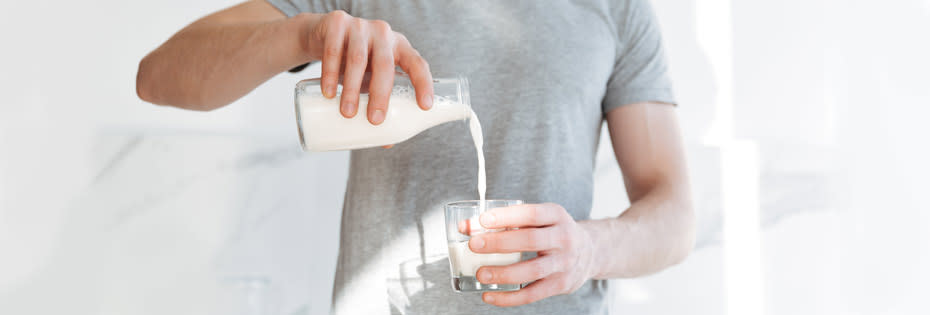10 ways to keep your bones strong and healthy
10 ways to keep your bones strong and healthy
Bone health is a significant part of the overall health of our bodies and one that we don’t pay much attention to. What we don’t see, we often don’t feel the need to work on.
It's important to be aware and understand that the first two decades of our lives is where we need to put more thought and effort into our bone health, as this is the time we can influence our peak bone mass.
Don’t be discouraged if you are already over twenty, there’s still plenty of lifestyle changes and precautions you can take to achieve strong and healthy bones as you age. Outlined below are 10 tips.
1. Eat more vegetables
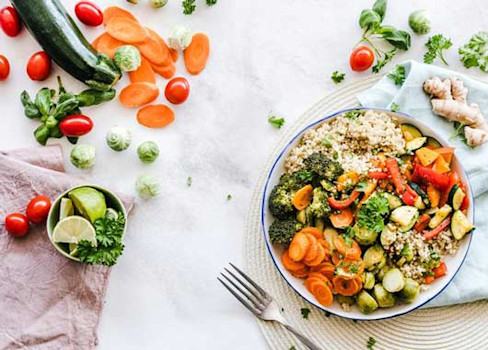
For our overall health, vegetables are on the top of the list. With such a wide variety to choose from, rich in vitamins and minerals, it's important to eat vegetables every day.
A study1from NCBI, states that vitamin C, a vitamin abundant in most vegetables, has the potential to protect bones from damage. More specifically, yellow and green vegetables are able to aid in bone mineralisation in children and maintain bone mass and strength in adults.
On the same note, bone mineral density increases with the consumption of vegetables too. Healthline2 describes bone density as, “a measurement of the amount of calcium and other minerals found in your bones. Both osteopenia (low bone mass) and osteoporosis (brittle bones) are conditions characterised by low bone density.”
Vegetables for healthy bones include green leafy vegetables including: beet greens; collard greens; (a member of the cabbage family), dandelion greens; mustard greens; broccoli; cabbage; parsley; kale; okra; tomato products; artichokes; plantains and sweet potatoes.
2. Do weight-bearing and strength training exercise
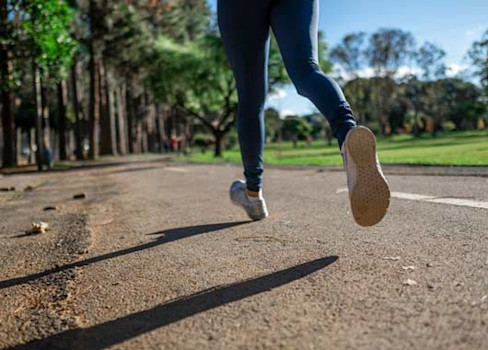
Keeping your body physically fit and active delivers excellent benefits. You reduce the risk of type 2 diabetes, cardiovascular disease and even cancer, it also benefits your bones.
In a study3, older men and women were given weight-bearing exercises to complete over 32 weeks. These include exercises that force you to work against gravity. Activities included walking, jogging, hiking, climbing the stairs, playing tennis or dancing. During this time, participants bone mineral density, bone strength and size increased and reductions in inflammation also occurred.
As well as strength training, building muscle mass isn’t the sole benefit, this style of exercise also leads to us building stronger bones.
While some studies suggest that strength training can slow down bone loss, studies have also illustrated that it can lead to building bone mass. When we are able to put positive stress on the bones, it activates the bone-forming cells which aid us in developing stronger and denser bones.
3. Include protein in your diet

Protein consumption can be a tricky food to manage but can produce beneficial effects on our bones. The confusion comes from how much protein we should consume. Too little has been reported to decrease calcium absorption and may even affect the rates of bone structure and bone breakdown.
Too much protein can lead to calcium being taken from bones to offset the acidity in the blood.
It’s important to be aware of how much protein is in your diet. One hundred grams of protein, along with a healthy number of vegetables and calcium-rich foods, will help keep your bones strong. That’s vital as about fifty per cent of our bones are made from protein.
A study4 that observed 144,000 postmenopausal women over six years found that higher protein intake was linked to lower risks of fractures and high bone density in the forearm, hip, spine and overall body. Making protein a significant part of a bone-strengthening diet.
4. Include calcium in your diet
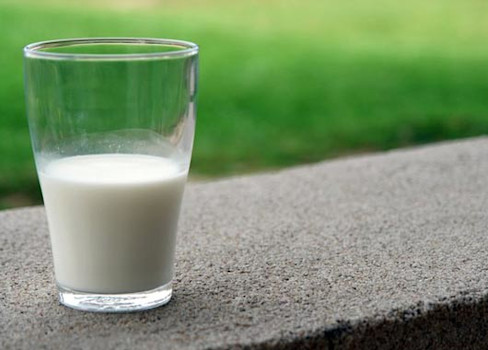
Calcium is the mineral you will consistently hear about when it comes to strengthening your bones. It’s the most essential mineral and primary mineral found in bones.
A few unique factors come into play when consuming calcium. As our bodies break down and replace old bone cells, calcium is needed to be consumed consistently every day.
Our bodies ability to absorb the correct levels of calcium from each meal may vary.
If you’re worried about your absorption then it’s good to understand that consuming certain foods that contain vitamins can assist in the absorption of calcium. For instance, vitamin D, C, E, K and the mineral magnesium allow your body to absorb more calcium.
Sometimes our daily lives inhibit us to really focus on how much calcium, vitamins and minerals we consume. This is when some people choose to seek alternatives such as taking nutritional supplements.
5. Eat foods high in vitamins

Vitamins D and K are very important to consume for healthy, strong bones.
Vitamin D: we have already outlined that the vitamin D is able to help the absorption of calcium. Healthline2 also states that vitamin D is able to achieve “a blood level of at least 30ng/ml (75nmol/l) which is recommended for protecting against osteopenia, osteoporosis and other bone diseases.”
With billions of people being deficient in vitamin D due to the fact that its main source comes from the sun, a supplement is the best way to ensure you have the vitamin D you need.
Vitamin K: More specifically, vitamin K2, is able to change the protein in our bone formation, called osteocalcin. This change allows a decrease or prevention of loss of calcium in the bones by bonding to the minerals in our bones. Foods like eggs, meat, liver and fermented foods like sauerkraut, cheese and soybeans are great sources of vitamin K2. A supplement is also a great way to get your daily dose of vitamin K.
6. Maintain a healthy weight
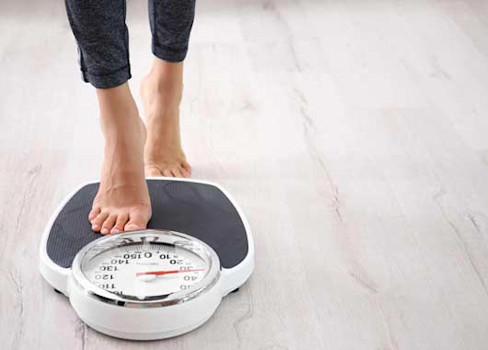
Some of us count calories as a way to maintain a healthy weight, which is an important part of our overall health. When it comes to bone health, the exact number of calories we consume become an important factor.
When our calories fall short of the recommended 2000 (women) and 2,500 (men) a day intake, we suffer from a slower metabolism, immense sense of hunger, muscle mass loss and of course, our bones can suffer too.
In a four-month study5, obese women were placed on a strict 925 calorie diet. The study found that, despite resistance training, these women's bone density dropped significantly from their hips and upper thigh regions.
7. Eat foods rich in minerals

Although calcium is the most important mineral for bone strength, there are other minerals that have positive effects as well.
Magnesium: Magnesium is an essential part of our nerves, muscles and all living cells. Interestingly, two-thirds of the magnesium found in our body is in our skeleton. It is found in dark green vegetables, whole-grain bread and nuts, a 100mg supplement a day can help with a lack of magnesium in your diet.
Zinc: Zinc is a mineral only needed in very small amounts but helps promote bone-building cells and stops the breakdown of bone. Zinc supplements are able to maintain bone density in older adults. However, you can also eat zinc-rich foods like beef, shrimp, spinach, flaxseeds, oysters and pumpkin seeds.
8. Avoid caffeine, smoking and drinking
An excess of caffeine, smoking and drinking can all wreak havoc on our health. Along with illnesses like lung cancer and liver disease, you can become more at risk of bone disease (osteoporosis) and risk of bone fracture.
While drinking high amounts of caffeine and alcohol have been known to leach the calcium out of our bodies (which, in turn, prevents our bodies from being able to absorb calcium easily), smoking has been seen to reduce blood supply to the bones.
9. Take collagen supplements
Although currently there isn’t significant evidence, early testing shows that collagen supplements could protect bone health. Collagen is the main protein found in bones and the major part of connective tissues. Additional studies are underway.
10. Test your bone density
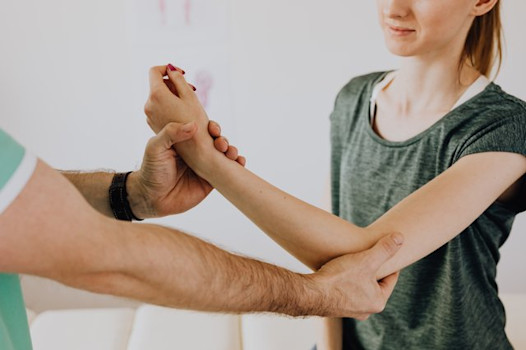
If you are worried about your bone health, a bone density test could put your mind at ease or indicate what you need to work on.
Bone density tests are simple and painless with almost no preparation needed. You will either need a referral from your GP if the doctor feels it is necessary otherwise you can pay for a test privately. Essentially, a machine will measure your bone density through your finger, wrist or heel. You then will receive a T-score and a Z-score.
Mayo Clinic6 describes the T-score as “your bone density compared with what is normally expected in a healthy young adult of your sex” and your Z-score as “the number of standard deviations above or below what's normally expected for someone of your age, sex, weight, and ethnic or racial origin.” If your score comes back on the negative side, don’t worry too much. Although important, these tests aren’t typically 100% accurate due to the part of the body being tested. So, your doctor may recommend a follow-up scan which will test your spine or hip for further diagnosis.
Important Supplements
- Calcium
- Vitamin D
- Magnesium
- Vitamin K
- Boron
- Silicon
- Herbal Supplements
Summary
Bone health is very important and should not be ignored. These tips should help you create stronger, denser bones and essentially support your overall health. If you find it difficult to add certain vitamins and minerals into your lifestyle, you can always consider nutritional supplements.
References
1. Aghajanian P, Hall S, Wongworawat MD, Mohan S. The Roles and Mechanisms of Actions of Vitamin C in Bone: New Developments. J Bone Miner Res. 2015;30(11):1945-1955. doi:10.1002/jbmr.2709
2. Spritzler, F. 10 Natural Ways to Build Healthy Bones. Heathline. 2017.
3. Marques EA, Mota J, Viana JL, et al. Response of bone mineral density, inflammatory cytokines, and biochemical bone markers to a 32-week combined loading exercise programme in older men and women. Arch Gerontol Geriatr. 2013;57(2):226-233. doi:10.1016/j.archger.2013.03.014
4. Beasley JM, LaCroix AZ, Larson JC, et al. Biomarker-calibrated protein intake and bone health in the Women's Health Initiative clinical trials and observational study. Am J Clin Nutr. 2014;99(4):934-940. doi:10.3945/ajcn.113.076786
5. Andersen RE, Wadden TA, Herzog RJ. Changes in bone mineral content in obese dieting women. Metabolism. 1997;46(8):857-861. doi:10.1016/s0026-0495(97)90070-6
6. Mayo Clinic. Bone density test. Tests and procedures. 2017.

